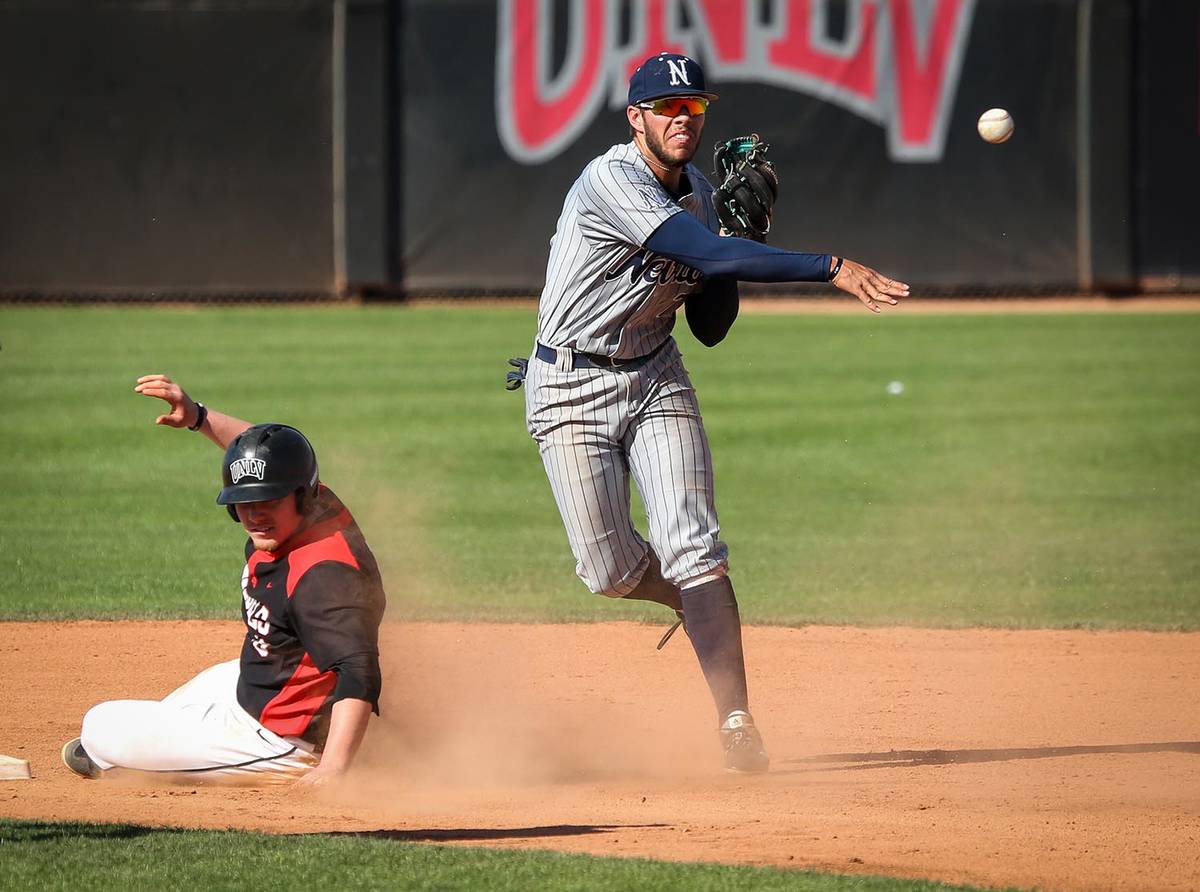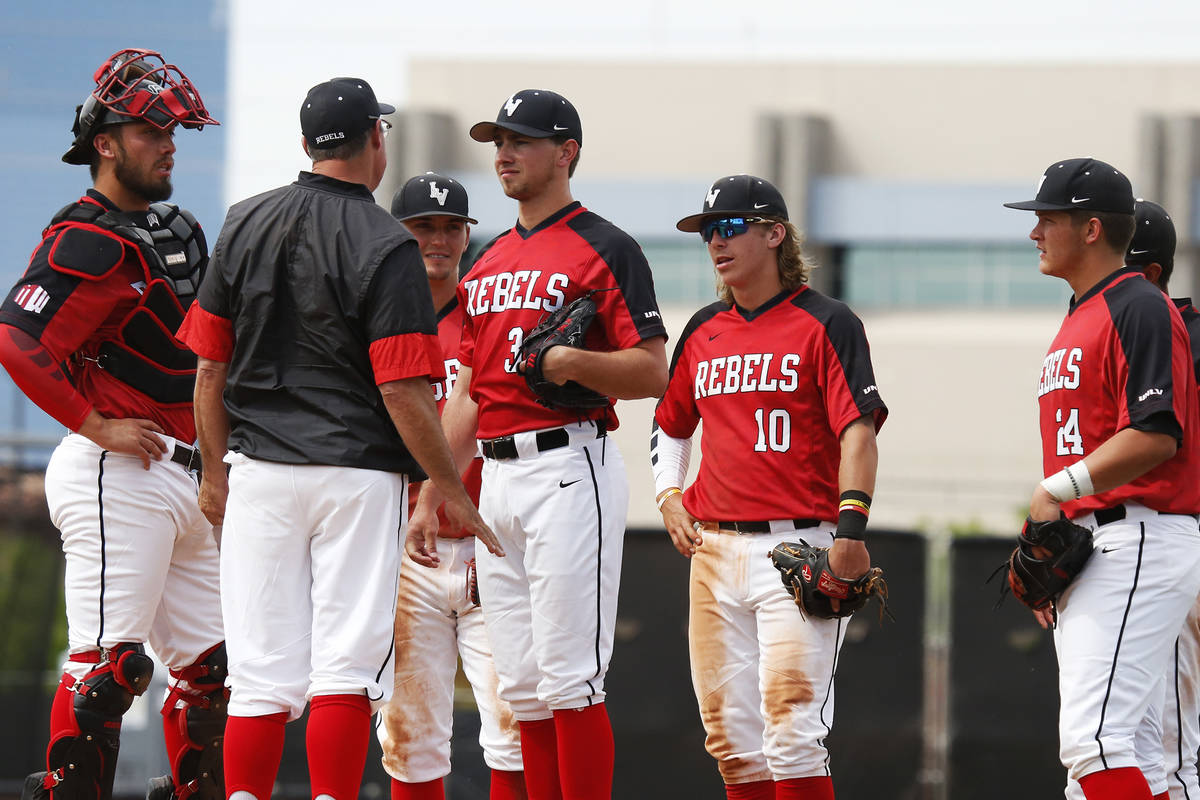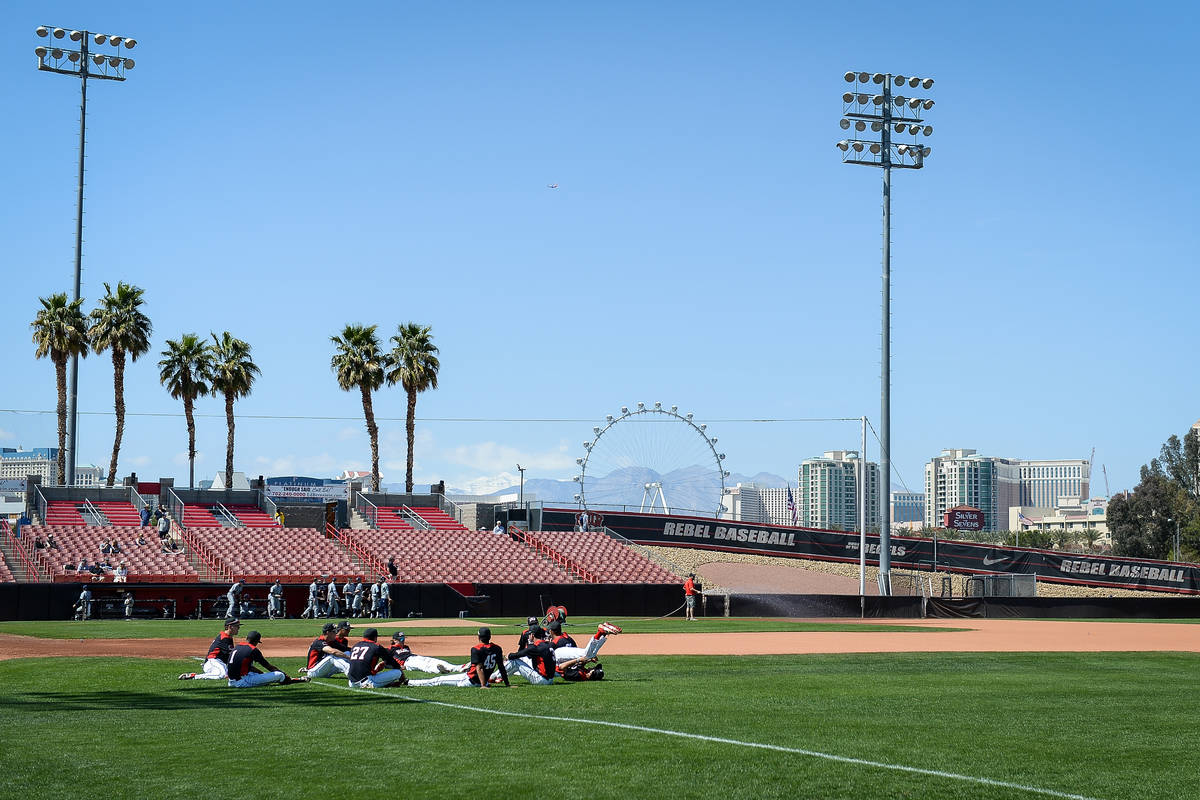UNLV’s Stan Stolte knows the nuances of shorter baseball season
UNLV baseball coach Stan Stolte had a brief message Wednesday for the Major League managers preparing for their 60-game regular season: “Welcome to the college baseball world.”
He’d know a thing or two about that.
MLB recently finalized plans for a 60-game season akin to a collegiate season, in which schools can schedule up to 56 regular-season games — plus postseason play. Each MLB team will play 10 games against each of its four division rivals, according to The Associated Press, like conference play in college.
Stolte, who has been the baseball coach at UNLV the past five seasons, said he expects the big league clubs to compete with an additional sense of urgency because of the shortened season. “You play 160, and at the end of the year, you are what you are. But (now) it’s important you win every game you possibly can,” he said.
Stolte also said major league managers figure to handle their pitching staffs differently. Starting pitchers in a groove, he said, might throw an additional 10 or 15 pitches depending on the magnitude of the game or situation. Top relievers could work more often, too.
“In college, the pitchers will get taxed more because of the importance of every game. Where in the big leagues, you’re not going to push a pitcher (during a normal season),” Stolte said. “We do a good job of not doing that to the extreme. But if there’s a big game, you’re going to bring your closer back maybe earlier than you would normally. Your starter might throw (more) pitches. It’s a different deal.”
Stolte said major league managers figure to stick with their normal routine early in this truncated season. “But when it gets closer to the end of the year, they’ll push their starters a little more,” he said.
Former major league pitcher Josh Towers thinks managers will be more inclined to make more pitching changes than usual because of the increased importance of each game.
He also said he expects to see pitchers unleash their best stuff earlier in the year.
“You’ve got to come out and you’ve got to win. And you’ve got to win right now,” said Towers, who in eight seasons went 45-55 as a starting pitcher for the Orioles, Blue Jays and Yankees and now lives in Las Vegas. “No more pacing yourself. You’ve got to go right now.”
College teams spread their 56 games out over the course of three months, building in three or four off days per week to provide rest and recovery time for the players. Major League teams, on the other hand, have about one off day every 10 days during a conventional season.
Stolte isn’t sure how that might play out during the 60-game season, or if fatigue will be as much of a factor as it is during the 162-game schedule.
“College baseball is all about energy. That’s what one of the great differences is between pro and college,” Stolte said. “It’s easier to get up when you’re only playing 56 (or 60) instead of 162.
“It should be more exciting,” Stolte added. “You lose three or four games that you shouln’t have. That’s going to be a big difference. … A couple plays could make the difference. In our situation, seven games could be the difference between being .500 or 35 wins. Every game is crucial.”
Towers added “It’s going to give everybody an opportunity to win. I can’t wait. … I hope the Marlins are facing the Padres in the postseason. I want to see something like that.”
Contact reporter Sam Gordon at sgordon@reviewjournal.com. Follow @BySamGordon on Twitter.



























